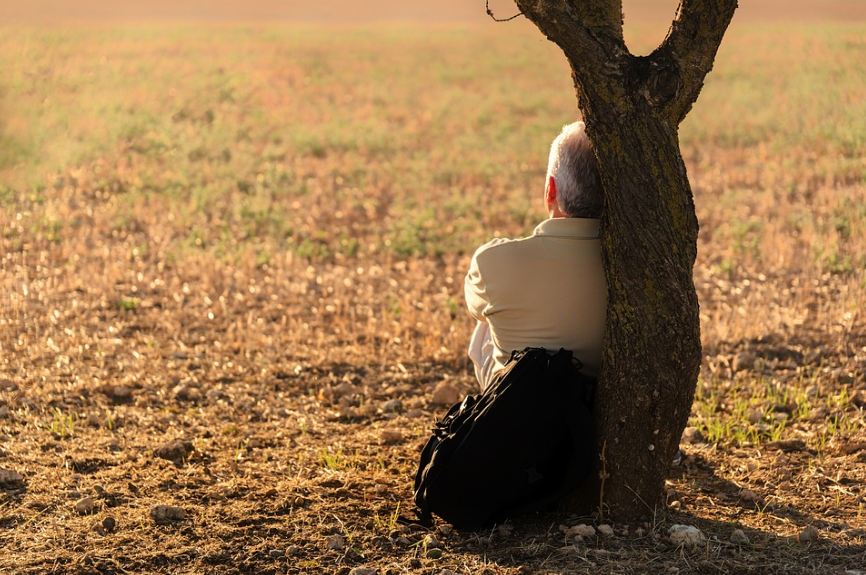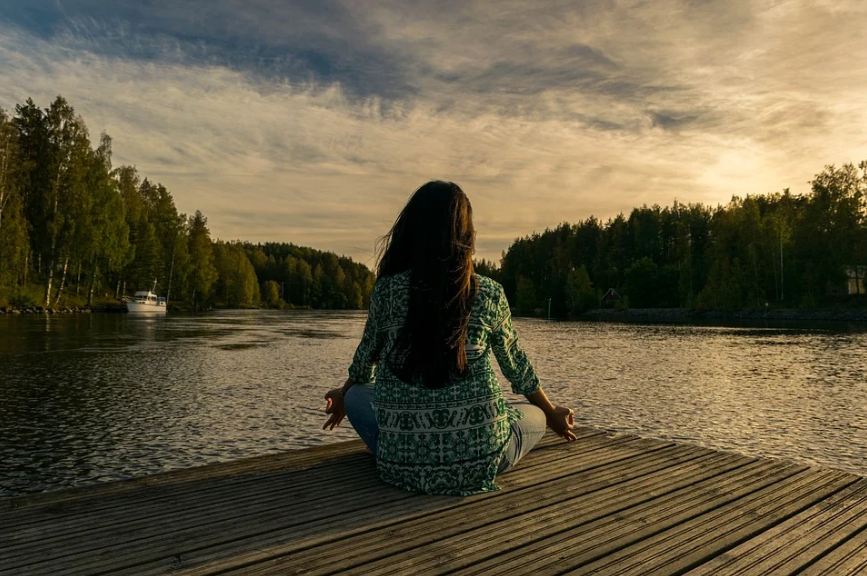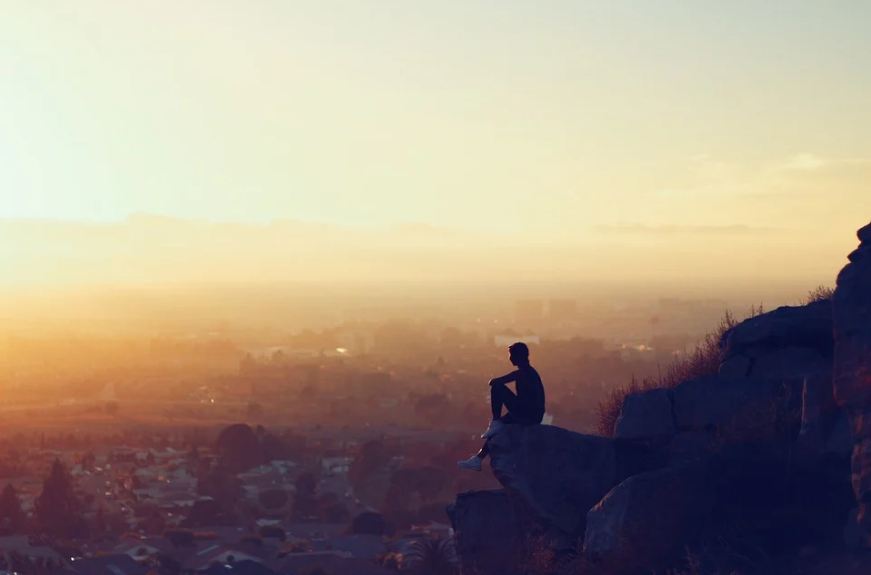Solitude is a state of being alone or secluding yourself, which means being away from people. It has both positive and negative aspects, depending on the circumstances. There are two durations of solitude; long term and short term.
A short-term duration of solitude is preferable when you’re working, thinking, or resting while avoiding being disturbed. It can also be desired for getting a little privacy. The isolation lasting a long time can lead to bad relationships, loss of loved ones, even cause mental and neurological disorders.
Mastering the art of solitude has its benefits on the human body if you learn to implement it the right way. To attain peace, getting to know your strengths, confronting your weaknesses, and changing your habits can help you on this journey.
Some people like to spend alone time, and some may even need this isolation for their mental well-being. That is why a certain percentage of the population is classified as an introvert. They like enjoying and spending time alone.
Others might not find the time or luxury to be alone due to their busy schedules and lifestyles. Having such lifestyles can significantly impact their physical, emotional, and psychological well-being.
Benefits of Solitude
1. Drops Our Social Guard
When we are alone, we can think about ourselves and understand our values, motives, and goals. We can make better choices and decisions about who we are and what we want without being influenced by societal and cultural expectations.
We often take things seriously that our family members, friends, or loved ones say. We also often get moved by our social, professional, and family circle’s thoughts, feelings, attitudes, beliefs, and behavior, leading us to a thinking pattern that others know better than us.
2. Helps in Recharging
Nowadays, there are so many opportunities and ways to communicate with each other, and most of us are dependent on our smartphones. We are more active socially than ever before, and we spend most of our time using social media outside of our working hours. We check emails, attend calls, rarely checkout but always check-in.
But unfortunately, doing such activities outside working hours don’t allow our mind to recharge. Our brains need to balance things, and while social interactions are essential to give us a sense of belonging, we also need enough time and space to detach and recharge ourselves.
3. Helps in Increasing Productivity
Solitude allows us to eliminate unnecessary distractions for a long time, giving us a personal space to concentrate, prioritize, and go back to our jobs with a clearer and fresh mind, motivation, and boosted energy.
When we are constantly interrupted or distracted, even by small things, our train of thought is disrupted, and our ability to achieve and do more extraordinary things reduce. Solitude allows us to harness our attention and efforts.
4. Helps Us in Self-Reflection
Self-reflection is an essential component of improvement. It makes us realize who we are and who we want to be, what our purpose is, and what we want to achieve in our lives. When we try to reflect on ourselves and where we are standing in life, we can re-adjust how we are doing things, how we are feeling and thinking, and realign ourselves in the direction we want to go.
However, self-reflection is a therapeutic and productive action where we work out on things we want and what we need to change or manage to be where we want to be in our personal and professional lives.
5. Helps in Boosting Creativity
Most of the famous writers, artists, thinkers, and inventors, have praised solitude for centuries. A study has proven that privacy improves creativity. We are more likely to develop the best ideas when we are alone than in a group or a collaborative environment. One of the main reasons for this can be that we are very sensitive to criticism.
Solitude gives us a sense of freedom to let go of the things that block our creativity and allow us to think freely. Furthermore, it enables us to express ourselves freely without being socially awkward in public.
6. Helps in Strengthening Relationships
Solitude is also beneficial in strengthening our relationships. It is essential in even the most familiar relationships to maintain a level of independence that keeps them interesting.
Also, when we have time alone, we recharge ourselves for social interactions. We get more engaged, appreciate others more, and learn to be grateful for the things and people we value. This is especially true for people who need solitude to improve their mental health, becoming overwhelmed by too much social interaction.
7. Helps Us Plan For Bigger Things
Solitude can improve our recognition and appreciation for personal relationships and encourage us to reorganize our priorities. When we engage ourselves in practicing solitude, we can clarify, evaluate and redirect ourselves by setting big and better achievable goals for the future
8. Helps in Reconnecting with Spirituality and Religion
Solitude also helps in triggering a new or renewed consideration of the spiritual or religious facets of life that we may have suppressed or pushed back into our minds. Isolation, especially in nature, can improve our spiritual awareness, making us feel closer to God and ourselves. Furthermore, it can also encourage us to explore spirituality in all its forms.
Best Ways to Attain Peace and Solitude
1. Meditation
Meditation is one of the best ways to experience solitude without having to travel to a remote territory. Being alone brings you closer to your inner self. You have to make sure that you are alone in your personal space, and there are no distractions there. Getting into a deeper meditative state takes some time to master but is worth it for solitude.
Meditation can be different for different people. Some people like to practice religion for attaining inner peace while others meditate according to Buddhist principles of meditation.
2. Diving Into Imagination
Activating your imagination, daydreaming, evoking memories and dreams, and getting lost in your thoughts are some of the great ways to experience solitude; this is called reverie. Psychologist Carl Jung was one of the keen proponents of reverie. He not only practiced these things himself, but he also recommended them to his patients.
Carl Jung suggested that practicing solitude and returning to joy and happiness helps us reclaim the kind of safe alone time that we used to experience in our childhood. These daydreams and joyful memories trigger creativity, allowing us to explore our minds, pasts, and inner worlds.
3. Being Around Nature
Being alone, especially in nature, is both terrifying and exciting. It can bring a sense of perspective to our existence that we cannot feel in our everyday lives. When we are entirely alone, we can focus on the environment, the scents, sounds, vastness, and minutiae.
A study was done in wilderness therapy, and environmental psychology proves that while spending time alone outdoors, we experience many therapeutical benefits, including stress reduction and restoring our attention.
It also helps create a contrasting experience for everyday living that benefits us mentally, physically, and emotionally. We can become more mindful of the things that matter most in our lives.
Solitude – An Important Step towards Inner Peace
Solitude is a great way to achieve inner peace by improving your creativity, letting go of your fears, and staying aware of the present conditions. It allows us to improve ourselves, challenge our habits, accept our weaknesses, and train our minds to do better in every situation.
Due to all these reasons, it is best to practice solitude, but you should keep in mind that too much of it may lead to many consequences.





